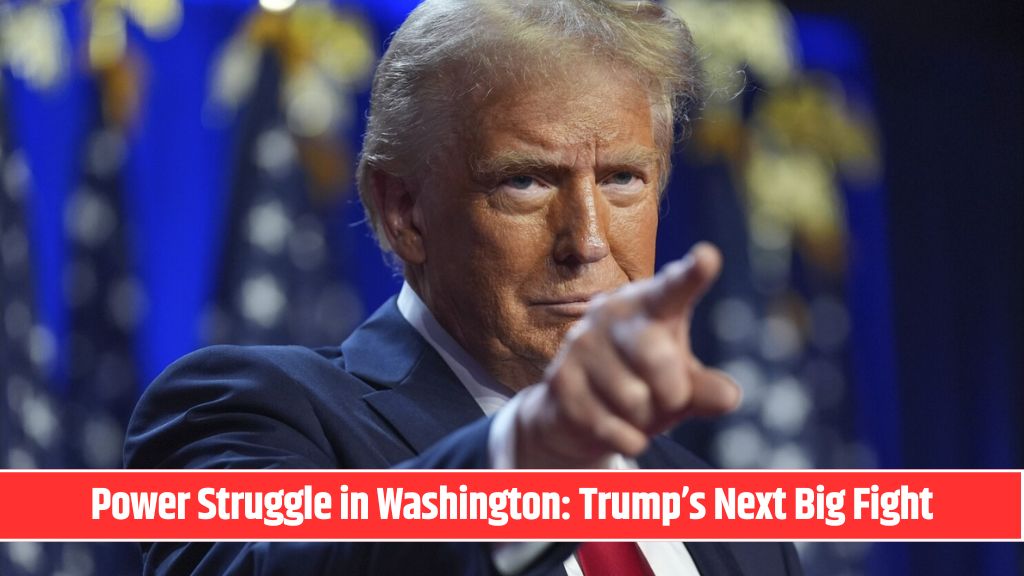President Donald Trump, back in the White House for less than a month, has begun an aggressive restructuring of the federal government, closing agencies, freezing congressionally mandated spending, and challenging constitutional limits on executive power. His actions, described by legal experts as unprecedented, are raising concerns from both Democrats and conservative Republicans alike.
Trump’s Shutdown of USAID Sparks Controversy
One of the most dramatic moves by the administration has been the dismantling of the U.S. Agency for International Development (USAID), a 63-year-old agency responsible for foreign aid. Despite being mandated by Congress and legally funded, Trump ordered its closure, sending home over 8,000 employees.
Hampton Dellinger, a former USAID official, described the mass firings as chaotic and terrifying. Employees were reportedly notified via email, with some escorted from the building without warning.
Legal Challenges to the Shutdown
Andrew Natsios, a Republican and former USAID Administrator under George W. Bush, argues that Trump violated federal law by closing the agency through executive order.
“He cannot rescind federal law by executive order. USAID was created by the Foreign Assistance Act, which is hundreds of pages long. Congress must act to dismantle it, and they haven’t,” said Natsios.
Trump has long criticized USAID, calling it a “radical” and “corrupt” agency where “billions have been stolen”—allegations Natsios strongly disputes.
“It’s utter nonsense. USAID is one of the most closely monitored aid agencies in the world,” he said. “Forty percent of its staff are accountants and lawyers dedicated to preventing fraud.”
USAID’s $38 billion budget in 2023 accounted for less than 1% of total federal spending. Despite occasional inefficiencies, multiple oversight agencies ensure that money is accountable and well-spent, according to Natsios.
Elon Musk’s DOGE Agency and the Federal Government Overhaul
Instead of working with Congress to reform agencies, Trump has outsourced federal budget cuts to billionaire Elon Musk, who now oversees a newly created agency called DOGE (Department of Government Efficiency).
What is DOGE Doing?
- DOGE engineers have gained access to the computer networks of USAID, the U.S. Treasury, and 18 other federal agencies.
- Long-time government officials who questioned DOGE’s actions have been placed on leave.
- DOGE staff have accessed unclassified financial and personnel data, with concerns that classified information may also be compromised.
Senator Chris Coons (D-DE), a member of the Senate Foreign Relations and Appropriations Committees, called the dismantling of USAID a “dress rehearsal” for future cuts.
“Next up is the Department of Education. Then they’ll target Labor, Veterans Affairs, Defense, and Social Security. Why?”
Coons is also deeply concerned about DOGE’s unrestricted access to government systems.
“They now have access to Social Security, Medicare, Medicaid, veterans’ benefits, and even tax records. If they control it, they can change it.”
Legal and Constitutional Concerns
Is This a Constitutional Crisis?
Legal scholars say the scope and speed of Trump’s executive actions may test the limits of presidential power like never before.
Stephen Vladeck, a constitutional law professor at Georgetown University, warns that Trump’s claims of fraud may be a cover for consolidating executive control over the federal government.
“The goal seems to be centralizing every single federal agency under direct White House control. That’s never been how executive power was understood.”
What Happens If Trump Ignores the Supreme Court?
Natsios and Vladeck agree that if the Supreme Court rules against the administration and Trump refuses to comply, it could trigger a constitutional crisis.
“If the Supreme Court says Trump’s actions are unlawful and he ignores the ruling, we will be in unprecedented territory,” Natsios said.
The dismantling of USAID, the rise of Musk’s DOGE agency, and unchecked executive power are raising alarm bells across Washington. While courts may temporarily block some actions, the broader question remains: How much power can a president wield before Congress or the judiciary steps in?
As legal battles mount, the fate of America’s system of checks and balances is at stake. Whether Congress, the courts, or the American public can rein in these sweeping changes remains to be seen.
